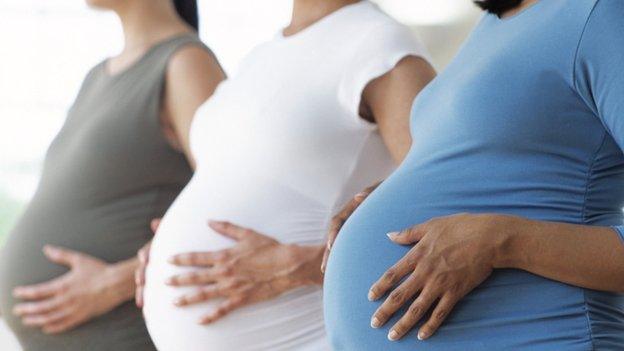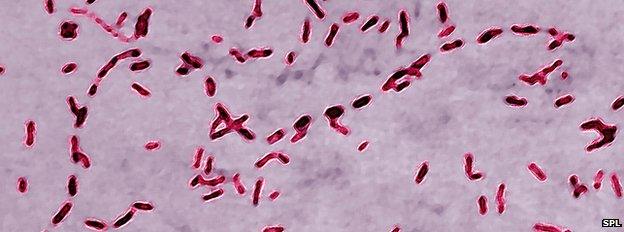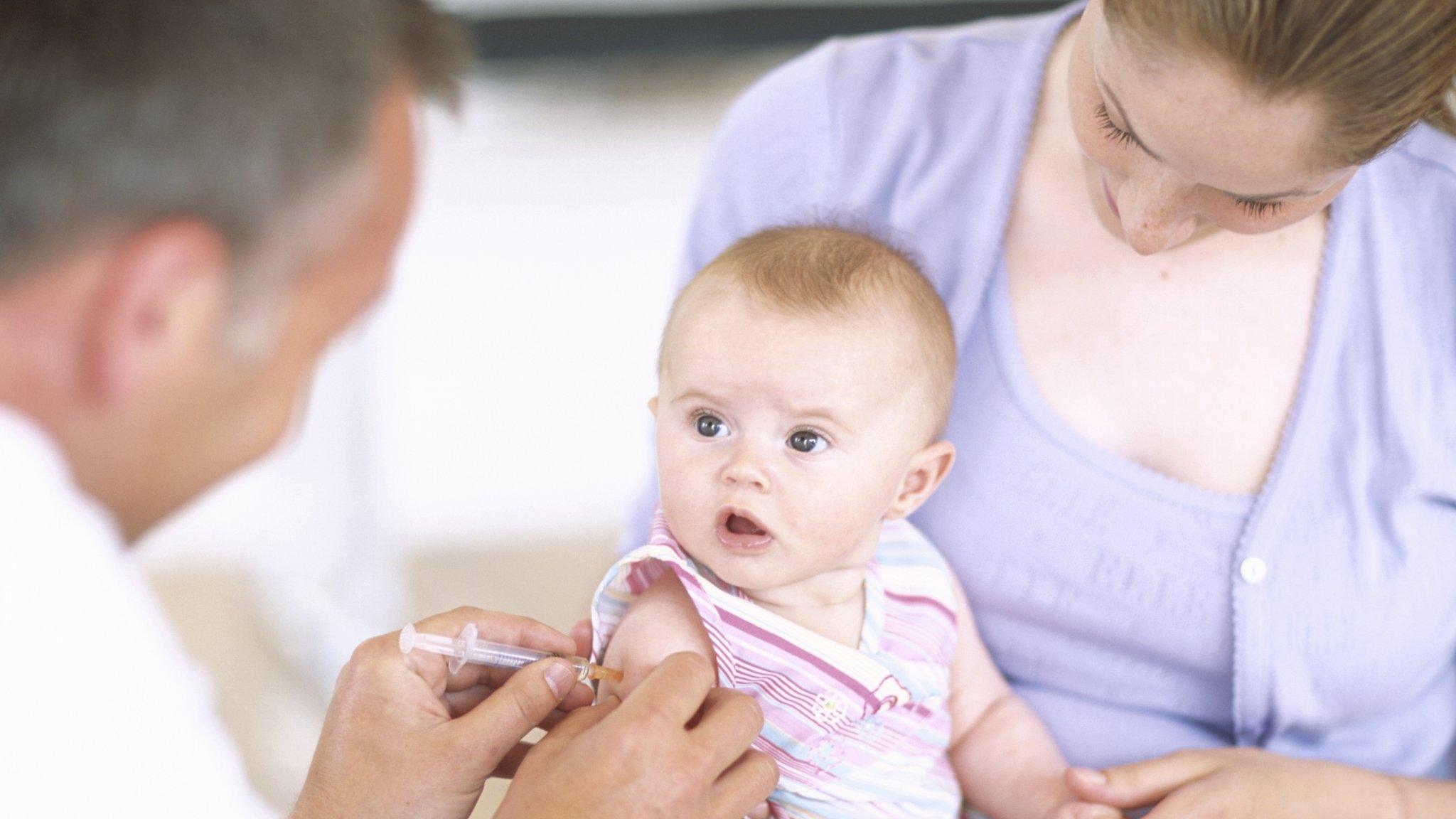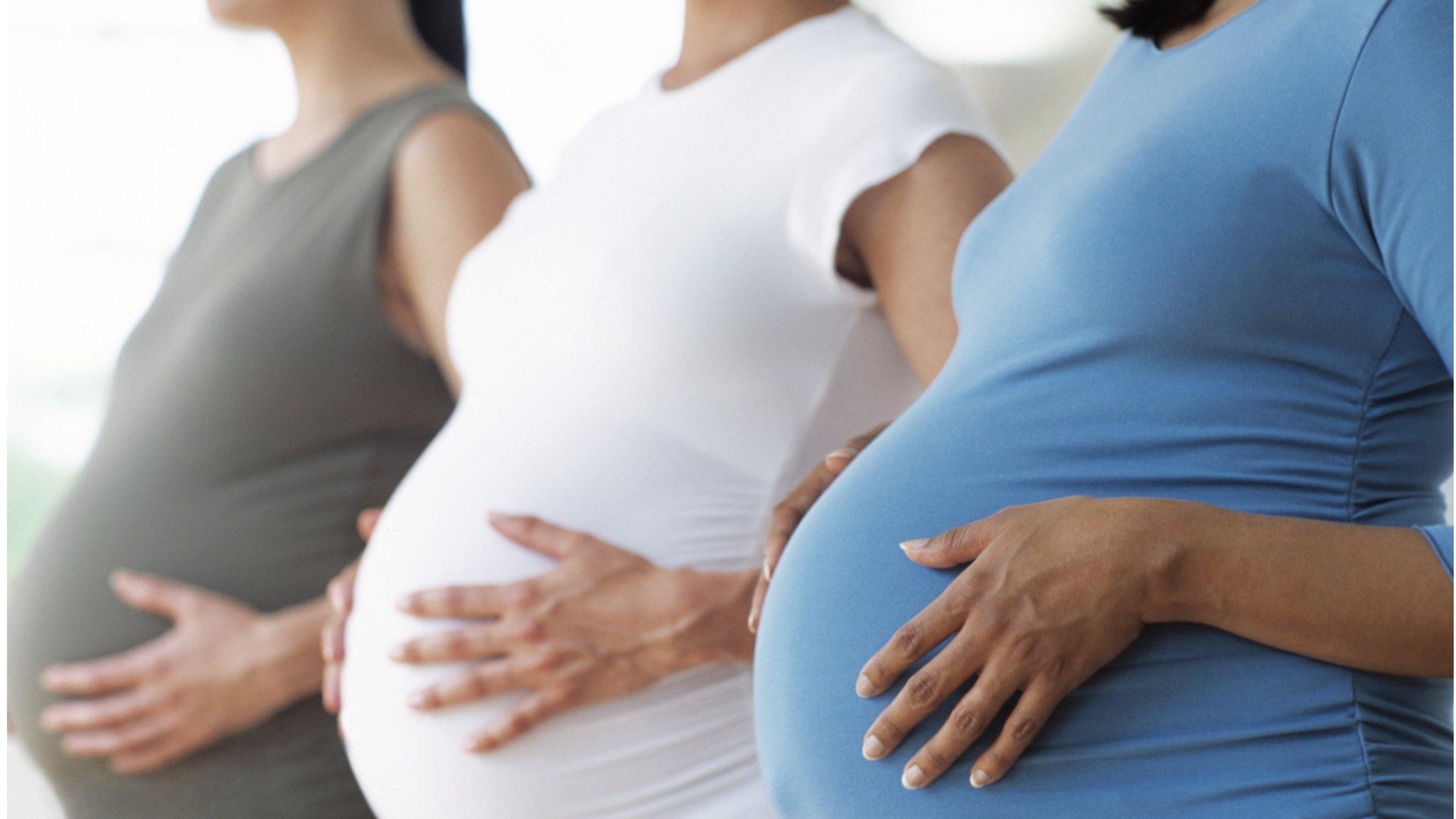Whooping cough: Pregnancy jab plans extended
- Published

Pregnant women in the UK are to be routinely vaccinated against whooping cough to protect babies.
Vaccination was introduced as a temporary measure after an outbreak of the disease in 2012 that killed 14 newborn children.
Giving a jab to mothers passes protective antibodies on to the unborn child.
The Joint Committee on Vaccination and Immunisation said lives had been saved and advised continuing vaccination.
Newborns are vaccinated at two, three and four months of age.
Whooping cough can infect anyone, but it is babies during their first few months of life who are most vulnerable.
The infection can stop the baby breathing or lead to pneumonia, brain damage, weight loss and death.
'Distressing illness'
The government introduced plans to vaccinate women 28 to 38 weeks into a pregnancy in order to keep babies protected until their first jab.
Public Health England said vaccination in pregnancy reduced the risk of whooping cough in a child by 91%.
A separate analysis showed there was no damage to the developing child.
The advisory committee on vaccines said there was a "great deal of uncertainty" about future outbreaks and advised women continue to be vaccinated for the next five years.
Gemma Price talks about finding out her daughter Zoe had whooping cough
Prof John Watson, deputy chief medical officer, said: "It's an extremely distressing illness that can lead to young babies being admitted to hospital and can potentially be fatal."
The last outbreak, which started in 2011 and gained serious momentum in 2012, was the biggest in more than two decades. Around 10,000 people were infected.
There were 14 deaths in 2012.
Since vaccination was introduced nearly two years ago there have been a further eight deaths, seven in unvaccinated families.
Dr Mary Ramsay, the head of immunisation at Public Health England, said: "These infant deaths remind us how important it is that every pregnant woman is informed about the benefits of the vaccine and given the opportunity to receive it at the right time so their babies are protected from birth.
"Although we have also seen a decline in cases in older children and adults from the peak in 2012 the numbers still remain considerably higher than those in 2011, suggesting the infection has not fallen to background levels.
"We urge pregnant women to ensure they are vaccinated."

What is whooping cough?

It is also known as pertussis and is caused by a species of bacteria, Bordetella pertussis
It mostly affects infants, who are at highest risk of complications and even death
The earliest signs are similar to a common cold, then develop into a cough and can even result in pneumonia
Babies may turn blue while coughing due to a lack of oxygen
The cough tends to come in short bursts followed by desperate gasps for air (the whooping noise)
Adults can be infected - but the infection often goes unrecognised

- Published1 February 2013

- Published28 September 2012
